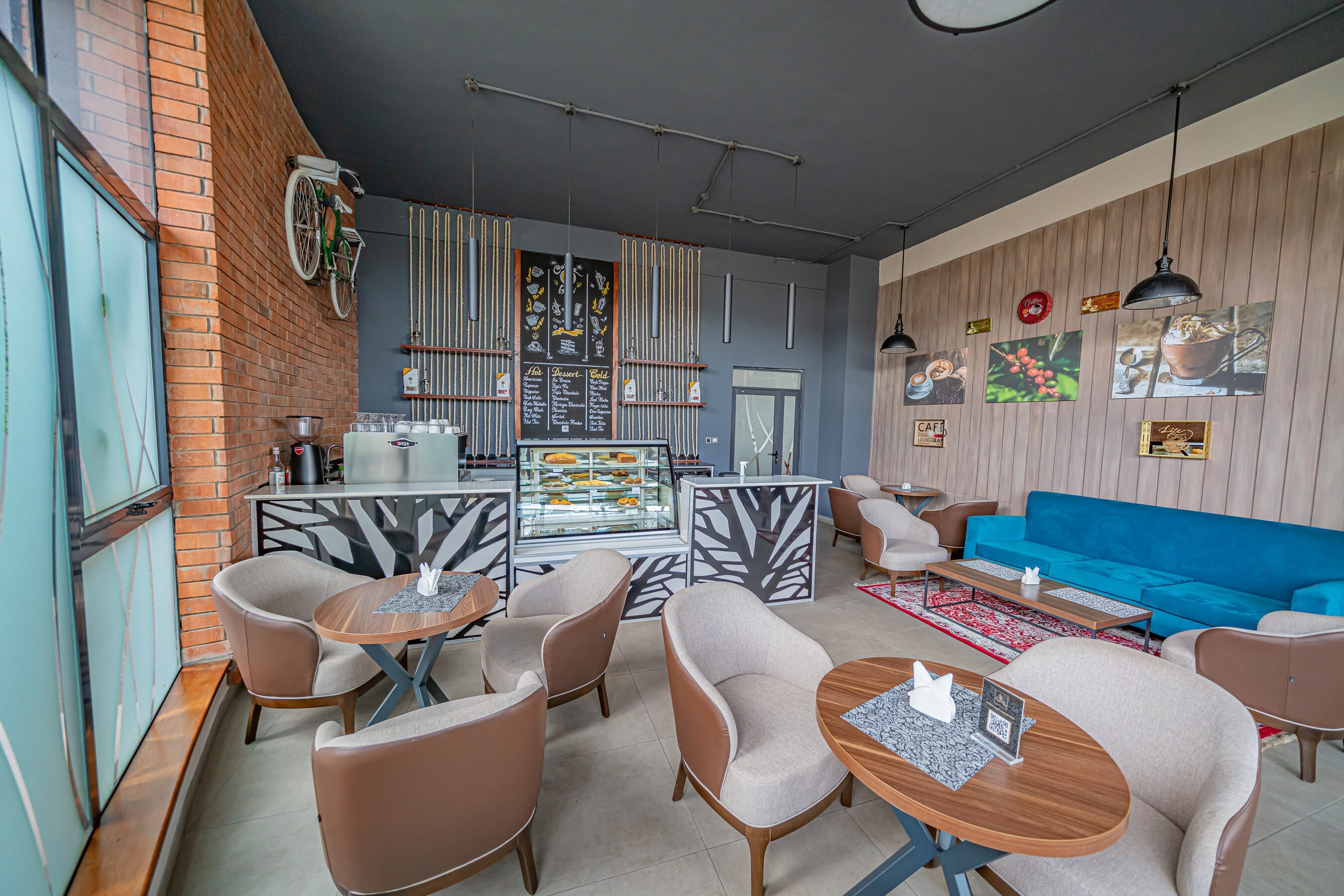
Land Ownership Types in Uganda: What to Know
Types of Land Ownership in Uganda: What to Know
Land ownership in Uganda is a vital topic, especially in light of the country’s rapidly growing population and the increasing demand for property. Understanding the intricacies of land ownership is essential for anyone looking to invest in Uganda's real estate market.
Uganda has four main types of land ownership: freehold, leasehold, customary, and mailo. Each type comes with its own rules, rights, and benefits, making it crucial to understand their differences before making any investments.
Whether you’re a local citizen or a foreign investor, familiarizing yourself with these systems can save you from costly mistakes and legal complications. This comprehensive guide breaks down everything you need to know about land ownership in Uganda, providing insights into the various types, acquisition processes, legal issues, and tips for navigating the market. Let’s get started.
Overview of Land Ownership Types
Uganda’s land ownership system is unique, blending traditional customs with modern legal frameworks. Here’s a detailed look at the four main types of land ownership:
- 1. Freehold Tenure
Freehold tenure provides complete ownership of the land, allowing the owner to use, sell, or bequeath it without any time constraints. This type of ownership is more common in urban areas, particularly in Kampala, where property values are steadily increasing. Freehold land is considered ideal for long-term investments, as the owner retains full control and rights to the property.
- Advantages:
◦ Complete ownership and control.
◦ No time limitations on ownership.
◦ Flexibility in land use, including development, resale, or inheritance.
- Disadvantages:
◦ Higher acquisition costs compared to other types.
◦ Possible land use restrictions depending on local zoning laws.
- Advantages:
- 2. Leasehold Tenure
Leasehold tenure means that the land is owned for a specified period, typically ranging from 49 to 99 years. Upon expiration of the lease, the land reverts to the original owner, which could be the government or another private entity. Leasehold tenure is particularly popular for commercial projects and is often utilized by foreign investors who may not have the opportunity to acquire freehold titles.
- Advantages:
◦ Access to prime locations at a lower initial cost.
◦ Potential for significant returns on investment if used for commercial purposes.
◦ Clearly defined duration of ownership.
- Disadvantages:
◦ The land is not owned indefinitely, leading to potential future complications.
◦ Limited control over the land once the lease expires.
- Advantages:
- 3. Customary Tenure
Customary land ownership is governed by traditional customs and practices and is commonly found in rural areas of Uganda. In this system, land is owned collectively by communities rather than individuals. While customary land can be more affordable, it may lead to disputes due to unclear boundaries and informal ownership arrangements. Buyers are advised to verify ownership thoroughly and ensure that there are no competing claims before making a purchase.
- Advantages:
◦ Typically lower acquisition costs.
◦ Facilitates community cohesion and traditional practices.
- Disadvantages:
◦ Higher risk of disputes due to unclear boundaries and informal ownership.
◦ Limited legal protections for buyers compared to other land types.
- Advantages:
- 4. Mailo Tenure
Mailo tenure is a unique system in Uganda, particularly in the Buganda region, that dates back to the colonial era. Under this system, land is divided into square miles, and multiple owners can hold rights to different parts of the same land parcel. Landowners can rent their land to tenants (kibanja holders), who pay a small fee (busulu) for the right to use it. This system creates complexities regarding tenant rights, obligations, and landowner responsibilities.
- Advantages:
◦ Provides opportunities for landowners to generate rental income.
◦ Recognizes traditional land ownership practices.
- Disadvantages:
◦ Potential for conflicts between landlords and tenants regarding rights and responsibilities.
◦ Complexities in determining ownership rights and obligations.
- Advantages:
Ownership for Foreigners in Uganda
Foreigners can own land in Uganda, but with specific restrictions. They can only hold leasehold titles, and are prohibited from acquiring freehold or mailo titles.
The maximum lease period for foreigners is typically set at 99 years, which necessitates careful navigation of these regulations.
Foreign investors often form partnerships with local citizens to facilitate land acquisition and navigate the legal complexities involved.
Several reputable agencies, such as TLG Living Group and Spectrum Properties, assist foreigners in securing land for development projects.
It’s essential to work with trusted agencies to avoid fraud and ensure compliance with local laws.
How to Acquire Land in Uganda
Acquiring land in Uganda involves several critical steps. Here’s a detailed overview of the process:
- 1. Identify the Land
The first step in acquiring land is to select a suitable location based on your investment goals. Urban areas like Kampala and Entebbe are ideal for commercial projects due to their established infrastructure and economic activity.
On the other hand, rural areas may offer more affordable land but can lack essential amenities and services.
- 2. Verify Ownership
Before making any purchase, it’s essential to verify the ownership of the land at the Ministry of Lands. This process involves checking the land title to ensure there are no disputes, encumbrances, or liens against it.
Engaging a qualified lawyer to assist with this process can be beneficial, as they can help navigate the legal complexities and ensure compliance with regulations.
- 3. Negotiate the Price
Land prices in Uganda can vary significantly based on location and land type. In Kampala, a plot can cost upwards of $50,000 or more, while prices in rural areas may start at around $1,000. It’s crucial to negotiate the price and ensure it reflects the true market value.
Conducting market research and seeking the advice of local experts can provide valuable insights for negotiation.
- 4. Transfer the Title
Once you’ve agreed on the price, you’ll need to initiate the process of transferring the title at the Lands Office. This process involves submitting the necessary documentation and paying the required fees and taxes.
After completing the transfer, you’ll receive a certificate of title as proof of ownership, which is vital for any future transactions involving the property.
Legal Issues and Challenges
Land ownership in Uganda is not without its challenges. Here are some of the main legal issues that investors may face:
- 1. Boundary Disputes
Unclear boundaries are a common source of conflict in land ownership, often leading to disputes between neighbors.
To mitigate this risk, it’s crucial to conduct a proper survey before purchasing land. Engaging professional surveyors can help establish clear boundaries and prevent potential conflicts.
- 2. Fraudulent Sales
Unfortunately, some sellers may attempt to sell the same land to multiple buyers. To protect yourself from fraudulent transactions, verify ownership and engage with trusted agents who can provide assurance about the legitimacy of the sale.
- 3. Inheritance Issues
Land disputes often arise within families over inherited property, which can complicate ownership transfers. It’s essential to ensure that the seller has the legal right to sell the land and that there are no ongoing family disputes that could affect the transaction.
- 4. Delays in Processing
Transferring land titles can take considerable time, often extending for months due to bureaucratic processes and administrative backlogs.
Patience and persistence are crucial when navigating the Ugandan land acquisition system. Keeping in regular contact with the relevant authorities can help expedite the process.
Recent Changes and Reforms in Land Laws
The Ugandan government is actively working to improve land ownership transparency and security. Recent reforms include:
- 1. Digitizing Land Records
The Ministry of Lands is in the process of digitizing land records, which helps reduce fraud and streamline transactions. This transition to digital records enhances accessibility and reliability for land buyers, facilitating easier verification of ownership and title transfers.
- 2. Strengthening Customary Rights
New legislation is recognizing and protecting customary land ownership rights. These reforms aim to safeguard rural communities against exploitation and ensure that their land rights are respected and upheld.
- 3. Streamlining Dispute Resolution
Specialized courts are being established to handle land disputes more efficiently. These courts aim to reduce delays and legal costs for buyers, facilitating quicker resolutions to conflicts and enhancing the overall efficiency of the land ownership system.
Tips for Real Estate Investors
Investing in Uganda’s land market can be profitable if approached carefully and strategically. Here are some tips for success:
- 1. Do Your Research
Understanding the local market dynamics is essential. Focus on areas with growth potential, such as urban centers like Kampala and emerging towns like Entebbe, where infrastructure development is on the rise.
- 2. Work with Experts
Engaging professionals, including lawyers, surveyors, and reputable real estate agencies, is crucial to verify ownership and boundaries. Agencies like TLG Living Group can provide valuable guidance throughout the acquisition process and help navigate local regulations.
- 3. Start Small
Consider starting with a small project to test the market before committing to larger investments. This approach allows you to gain valuable experience and insights into local dynamics, minimizing risks associated with larger investments.
- 4. Be Patient
Land transactions can take time due to various administrative processes and potential delays. Stay patient, remain engaged, and follow the necessary steps to ensure a successful purchase.
Final Thoughts
Land ownership in Uganda offers significant opportunities for both local and foreign investors. Understanding the different types of land tenure, the acquisition process, and the legal landscape is key to making informed decisions. By adhering to the rules, working with experts, and verifying ownership, you can navigate Uganda’s real estate market successfully.
Frequently Asked Questions
- A: No, foreigners can only hold leasehold titles. The maximum lease period is 99 years.

Agent
Share
Subscribe To Our Newsletter



